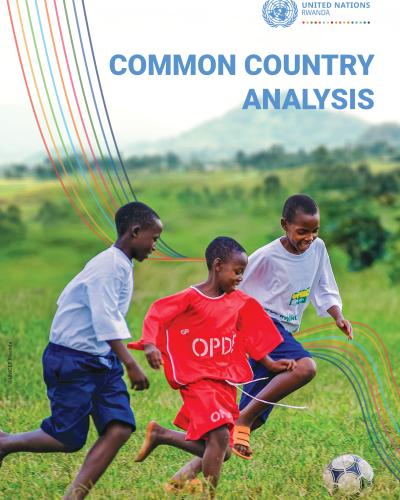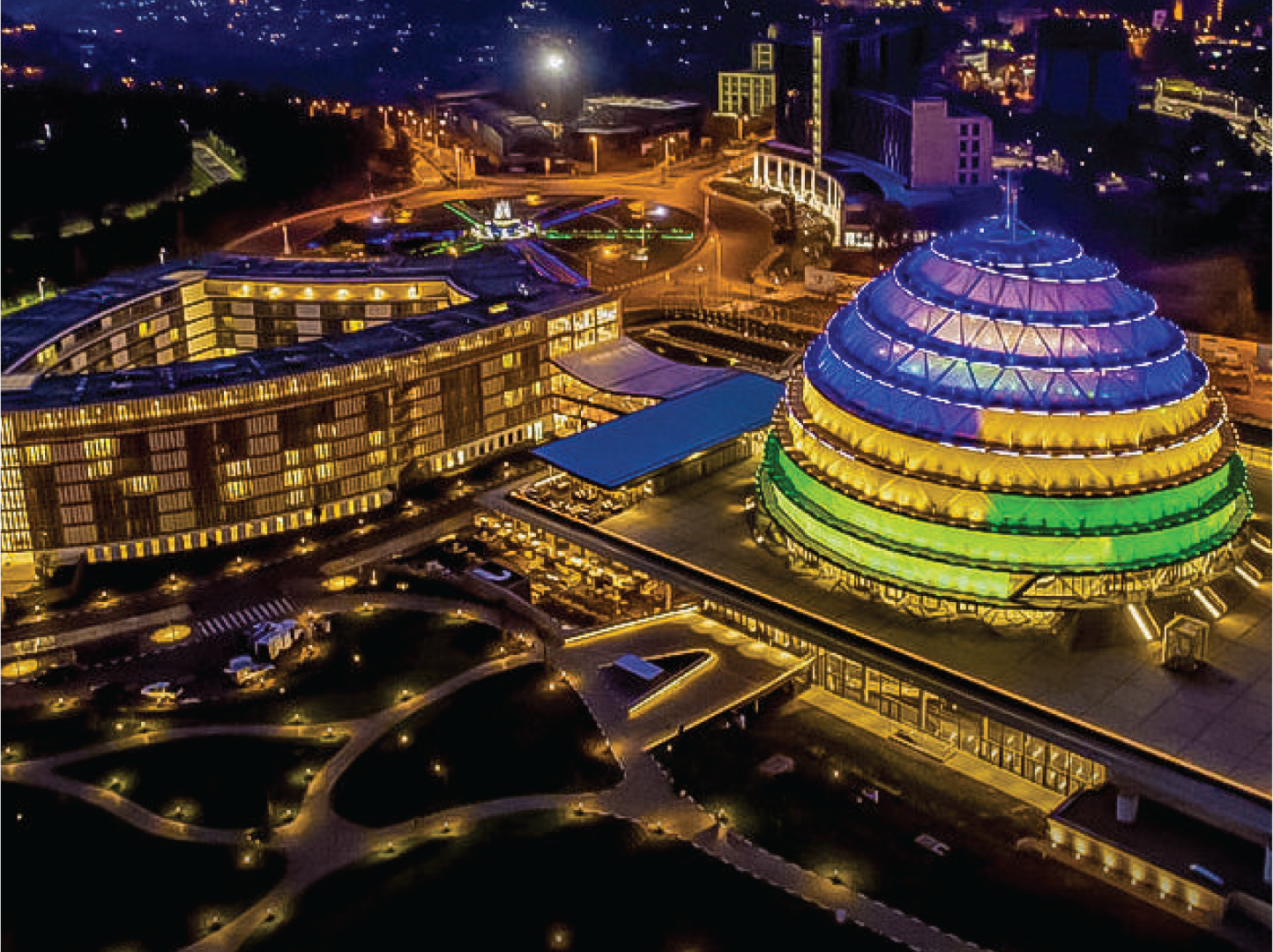UNITED NATIONS RWANDA COMMON COUNTRY ANALYSIS (CCA) 2023

I am pleased to present the UN Rwanda’s 2023 Common County Analysis (CCA). This is a collaborative effort of the UN Country Team (UNCT) aimed at comprehensively assessing the progress and challenges of Rwanda's socioeconomic development journey, taking stock on the progress towards the Sustainable Development Goals (SDGs), and offering recommendations to strengthen the country’s socio-economic transformation efforts that are at the core of national development planning.
Rwanda has made remarkable strides in recent years towards its national vision of becoming an inclusive middle-income country by 2035 and achieving the SDGs by 2030. The country's commitment to a development agenda anchored in resilience, inclusivity, and sustainability is commendable and aligns with the global aspirations for a better world. As we move forward, these aspirations demand substantial domestic and international resources, and prioritization is key given resource constraints. Therefore, foundations for transformative change must be enhanced, and investments should strengthen institutions and promote inclusive, green, and resilient economic growth -- leaving no one behind.
This analysis serves as a critical tool for both reflection and action, as it offers an in-depth assessment across various dimensions of development, highlighting areas where notable achievements have been recorded and, equally importantly, where challenges persist. Specifically, the CCA employs the five dimensions of the 2030 Agenda, providing an integrated and system-wide analysis of the context. The analytical process and content align with the "5P's" of the 2030 Agenda, encompassing: People: Focusing on the social dimension. Planet: Emphasizing the environmental dimension. Prosperity: Addressing the economic dimension. Peace: Highlighting the ethical dimension, with a commitment to ideals such as equality, freedom, human dignity, and justice. And Partnership: Underscoring the significance of collaboration and cooperation. The challenges identified through the 5 Ps analysis are multi-faceted and require integrated responses and concerted efforts from all stakeholders.
As the UN system in Rwanda, we are committed to supporting the country's progress toward Vision 2050 and SDG achievement. In this regard, the next Cooperation Framework must address root causes of inequalities and vulnerabilities, promoting inclusive growth, and building resilience, adopt innovative and upstream approaches, leveraging partnerships and collaborations across sectors. In addition, the UN is now seeking to shift from assistance to collaboration as a core principle, focusing on catalysing and promoting transformative, evidence-based, people-centred, equity-oriented, and risk-informed development actions. On our part, it is imperative that we shift from assistance to collaboration as we work together to accelerate progress toward the SDGs. This analysis will therefore provide valuable insights to guide policymaking and programme development, aligning our efforts with Rwanda's second generation of the National Strategy for Transformation.
I express deep appreciation for the valuable contributions of all involved in preparing this assessment, especially the overall leadership of UNCT in Rwanda, the technical leadership of the Program Management Team, and the Office of the UN Resident Coordinator. Gratitude also extends to UN colleagues from the Department of Political and Peacebuilding Affairs, the Office of the Special Envoy of the Secretary-General for the Great Lakes, and the United Nations Regional Office for Central Africa for providing a crucial regional perspective. Lastly, I want to acknowledge the exceptional support of Independent Consultant Mr. Arthur Byabagambi for all the backstopping work he rendered in the elaboration of this CCA.
We remain steadfast and resolute to supporting the Government of Rwanda and all its citizens and look forward to a future where Rwanda continues to thrive, and every citizen enjoys the benefits of progress. Together, we can achieve the Rwanda we want and make significant strides towards a more equitable and sustainable world.
This is an independent assessment, and the UN Rwanda team welcomes feedback on the content of this CCA.
Please send comments to Angela Zeleza: angela.zeleza@un.org and/or Josephine Marealle-Ulimwengu: ulimwenguj@un.org.
Ozonnia Ojielo - UN Resident Coordinator in Rwanda





















